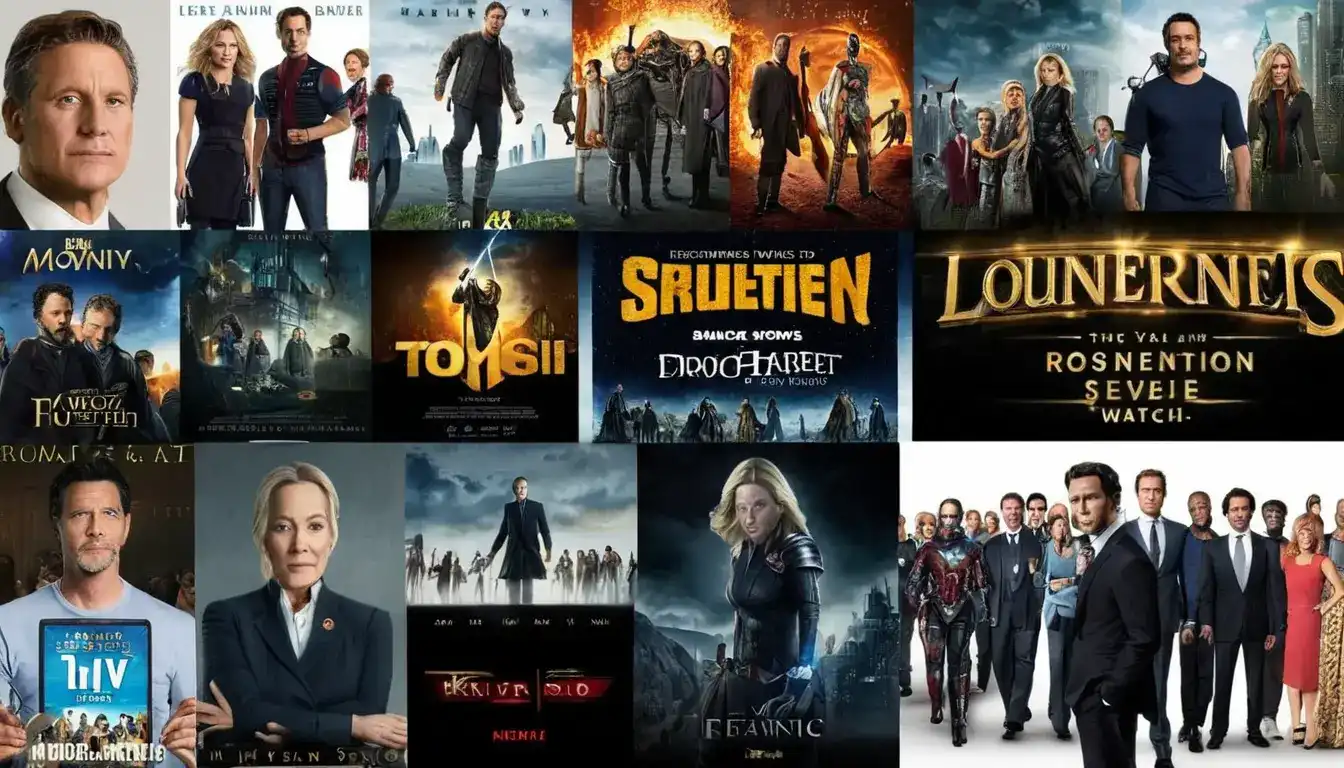Sportsmanship in the Spotlight: Cultivating Respect, Integrity, and Ethical Behavior
Emily Willis

Photo: Sportsmanship in the Spotlight: Cultivating Respect, Integrity, and Ethical Behavior
The roar of the crowd, the electrifying energy of a close game, the sting of defeat – these are the elements that weave the magic of sports. But beyond the athletic feats and competitive spirit lies a fundamental principle that elevates good games to truly great ones: sportsmanship. It's the embodiment of respect for opponents, fairness in play, and maintaining ethical behavior, regardless of the score on the board.
The Cornerstones of Sportsmanship:
Sportsmanship isn't just about winning or losing gracefully. It's a set of core values that guide athletes, coaches, and even fans in their conduct, both on and off the field:
- Respect: This is the bedrock of sportsmanship. It means treating everyone involved – opponents, teammates, officials, and even fans – with dignity and courtesy, regardless of personal feelings or the intensity of the competition. A handshake before and after the game, acknowledging good plays by the opposing team, and avoiding taunts or insults are all ways to demonstrate respect.
- Fair Play: Following the rules and competing within the spirit of the game is crucial. This means avoiding deliberate fouls, cheating, or exploiting loopholes in the rules to gain an unfair advantage. Playing by the rules ensures a level playing field and maintains the integrity of the competition.
- Graciousness in Victory and Defeat: Celebrating victories with humility and accepting defeat with dignity are hallmarks of sportsmanship. Winning athletes should avoid excessive gloating, while losing teams should avoid outbursts of anger or frustration. Both sides should acknowledge each other's efforts and learn from the experience.
Sportsmanship: A Team Effort
Sportsmanship isn't just about individual behavior. Coaches and team leaders have a crucial role to play in fostering and promoting it:
- Leading by Example: Coaches and team leaders who exhibit exemplary sportsmanship set the standard for their players and influence the overall team culture. Their actions speak louder than words and inspire players to prioritize fair play and respect.
- Positive Reinforcement: Highlighting and celebrating acts of good sportsmanship by athletes goes a long way. Public recognition and praise can motivate players to consistently demonstrate ethical behavior.
- Constructive Addressing of Unsportsmanlike Conduct: When players exhibit poor sportsmanship, coaches need to address it constructively. Open communication and highlighting the importance of respect and fair play can help players course-correct.
Why Sportsmanship Matters:
Sportsmanship is much more than just good manners. It has a profound impact on the game and those involved:
- Enhanced Enjoyment: Fair play and mutual respect make sports more enjoyable for everyone – athletes, coaches, and spectators alike. A well-played game with good sportsmanship is more exciting and rewarding than a lopsided victory tainted by poor behavior.
- Life Lessons Taught: Sportsmanship teaches valuable life lessons like respect, integrity, and the importance of fair competition. These lessons transcend the playing field and apply to various aspects of life, fostering good character and ethical conduct.
- Positive Role Models: Athletes who exemplify good sportsmanship become role models for young people, inspiring them to behave ethically and with respect. Seeing their heroes exhibit good sportsmanship can have a lasting positive influence on young athletes.
- Building a Stronger Community: Good sportsmanship fosters camaraderie and respect between teams, creating a positive and supportive environment within the sporting community. When athletes and teams prioritize sportsmanship, it strengthens the overall sports culture and creates a more welcoming space for everyone.
Challenges to Upholding Sportsmanship:
Despite its importance, upholding sportsmanship can be challenging:
- Pressure to Win: The intense desire to win championships and personal glory can sometimes lead athletes to compromise their integrity and resort to unfair tactics. The pressure to perform at the highest level can cloud judgment and lead to unethical decisions.
- Poor Examples by Role Models: Athletes and coaches who exhibit poor sportsmanship set a negative example, influencing others. High-profile athletes or coaches who engage in disrespectful behavior can send the message that winning at all costs is acceptable – a message that undermines the core values of sportsmanship.
- Winning Culture: The culture of "winning at all costs" can overshadow the importance of fair play and sportsmanship. This mentality emphasizes winning as the ultimate goal, regardless of how it is achieved.
- Fan Behavior: Overzealous fans, especially under the pressure of competition, can engage in disrespectful behavior towards opponents or officials. Their actions can create a hostile environment and distract athletes from focusing on the game itself.
Promoting Sportsmanship: A Shared Responsibility
Thankfully, there are steps we can take to cultivate a culture of sportsmanship:
Leading by Example: Sports organizations, coaches, and athletes who consistently demonstrate exemplary sportsmanship set the tone for others. When leaders prioritize and promote sportsmanship, it sends a powerful message throughout the sporting community.
Educational Programs: Integrating sportsmanship education programs into youth sports can instill these values from a young age. Teaching young athletes about the importance of respect, fair play, and graciousness in both victory and defeat can have a lasting impact.
Fair and Consistent Officiating: Strong and prompt officiating deters poor sportsmanship and ensures fair play. When officials enforce the rules consistently and fairly, it creates a level playing field and discourages athletes from resorting to unfair tactics.
Positive Reinforcement: Highlighting and celebrating acts of good sportsmanship encourages athletes to prioritize fair play. Recognizing and rewarding displays of sportsmanship can motivate athletes to consistently behave ethically.
Fan Education: Promoting sportsmanship awareness among fans can create a more positive and respectful environment. Encouraging fans to cheer their teams on with enthusiasm while respecting opponents and officials can make a significant difference.
Media Responsibility: The media plays a crucial role in shaping sports culture. By focusing on stories of good sportsmanship, providing objective commentary, and holding athletes and teams accountable for poor behavior, the media can promote positive values and discourage unsportsmanlike conduct.
Conclusion: The Spotlight on Sportsmanship
Sportsmanship is not just about winning or losing gracefully; it's about the values we uphold and the example we set for future generations. By prioritizing sportsmanship, we can create a sporting environment that is not only more enjoyable but also one that teaches valuable life lessons and promotes respect, integrity, and ethical behavior.
Latest ✨
View Alllist of recommended movies and TV series to watch this year. The movies include "Dune: Part Two," "Spider-Man: No Way Home," "The French Dispatch," "No Time to Die," and "Encanto." The TV series include "Stranger Things: Season 4," "The Mandalorian: Season 3," "The Witcher: Season 2," "Ted Lasso: Season 3," and "Loki: Season 2." Each entry includes reasons to watch, such as stellar cast, visually stunning cinematography, engaging plot, and character development.
Emily Willis
Unlock your website's potential! Learn CRO secrets to convert more visitors into customers, boost growth, and maximize existing traffic.
Emily Willis
Explore the future of education! Discover how personalized, engaging, and flexible learning, powered by AI & blended models, will revolutionize classrooms.
Emily Willis
Découvrez comment trouver une assurance auto pas chère sans sacrifier la qualité. Notre guide 2025 vous offre astuces, comparatifs et conseils d'experts pour économiser intelligemment.
Emily Willis
Business
View All
August 4, 2024
Leveraging Digital Marketing to Boost Business SalesDigital marketing is crucial for businesses in the digital age to boost sales and stay competitive. Strategies such as SEO, PPC advertising, social media marketing, email marketing, and content marketing can help reach target audiences, build brand awareness, and drive conversions.
Emily Willis

June 9, 2025
Protect Your Intellectual PropertyUnlock the power of your ideas! Learn why protecting intellectual property (IP) is vital and discover actionable strategies to safeguard your creations.
Emily Willis

June 8, 2025
Business Finance for EntrepreneursEntrepreneurs: Unlock sustainable growth by mastering business finance. Learn financial fundamentals, statements, and funding strategies.
Emily Willis
Economy
View AllUnlock the secrets of national budget deficits & surpluses. Discover their direct impact on taxes, public services, jobs, and your nation's economic future.
Read MoreNavigating government debt: Explore its complexities, challenges, and actionable solutions for a healthy economy and a prosperous future.
Read MoreDemystify the unemployment rate. Learn what it signifies, how it's measured, and why this economic barometer impacts your daily life.
Read MoreEntertainment
View All
August 5, 2024
VR and AR Transform EntertainmentVirtual reality (VR) and augmented reality (AR) are transforming the entertainment industry by offering immersive experiences that blur the lines between the real and virtual worlds. VR completely transports users into computer-generated environments, while AR overlays digital elements onto the real world.
Emily Willis

August 5, 2024
Music's Evolving Landscape: Technology, Social Media, and Global TrendsThe music industry has undergone significant changes due to technological advancements, social media, and a growing global audience. The shift from analog to digital formats, the rise of streaming services, and the impact of social media on artist-fan relationships are explored.
Emily Willis

August 4, 2024
Recommended Movies and TV Series to Watch This Yearlist of recommended movies and TV series to watch this year. The movies include "Dune: Part Two," "Spider-Man: No Way Home," "The French Dispatch," "No Time to Die," and "Encanto." The TV series include "Stranger Things: Season 4," "The Mandalorian: Season 3," "The Witcher: Season 2," "Ted Lasso: Season 3," and "Loki: Season 2." Each entry includes reasons to watch, such as stellar cast, visually stunning cinematography, engaging plot, and character development.
Emily Willis
Health
View AllThe healthcare landscape is being transformed by technological advancements, with telehealth and remote care providing convenient access to healthcare services. Artificial intelligence is revolutionizing diagnostics, personalized medicine, and drug discovery. Wearable technology is empowering patients to take control of their health.
Emily Willis
Regular exercise is essential for maintaining both physical and mental health. It helps with weight management, cardiovascular health, muscle strength, energy levels, and sleep quality. Exercise also reduces stress and anxiety, improves mood, cognitive function, and self-esteem, and lowers the risk of depression. Different types of exercises, such as aerobic, strength training, flexibility, balance, and mind-body exercises, contribute to overall health. To start and maintain an exercise routine, it is important to start slowly, set realistic goals, find enjoyable activities, stay consistent, and listen to your body.
Emily Willis
Regular physical activity is crucial for maintaining long-term health and well-being. It has numerous benefits, including improving cardiovascular health, aiding in weight management, enhancing mental health, strengthening bones, boosting immune function, and promoting longevity.
Emily Willis
Trending 🔥
View All
1
2
3
4
5
6
7
8
9
10
Sports
View AllAugust 5, 2024
Celebrating Sports Legends: Honoring Iconic Figures and Their Enduring Impact
Read MoreAugust 5, 2024
Sports for Social Good: Promoting Diversity, Inclusion, and Community Engagement
Read MoreTechnology
View All
August 5, 2024
The Future of IoT and Its Potential to Improve Quality of Life
The Internet of Things (IoT) is a transformative force that is revolutionizing daily life by connecting devices and enabling them to exchange data autonomously. The growth trajectory of IoT is projected to surpass 75 billion connected devices by 2025, impacting various sectors such as healthcare, smart cities, agriculture, and home automation.

August 5, 2024
The Most Common Types of Cybersecurity Threats
In today's digital age, cybersecurity threats are increasing in sophistication and frequency. It is important for businesses and individuals to be aware of these threats in order to protect sensitive information and maintain privacy. Understanding common types of cybersecurity threats is the first step in safeguarding against them.

August 4, 2024
AI-Powered Robots Take Over Manufacturing Jobs: Is Our Workforce Prepared?
AI-powered robots are transforming the manufacturing industry, leading to increased efficiency and improved product quality. While concerns about job displacement exist, AI is more likely to transform jobs rather than eliminate them.

August 4, 2024
Sustainable Technology: The Key to a Greener Future
sustainable technology in addressing environmental challenges and creating a more sustainable future.




















